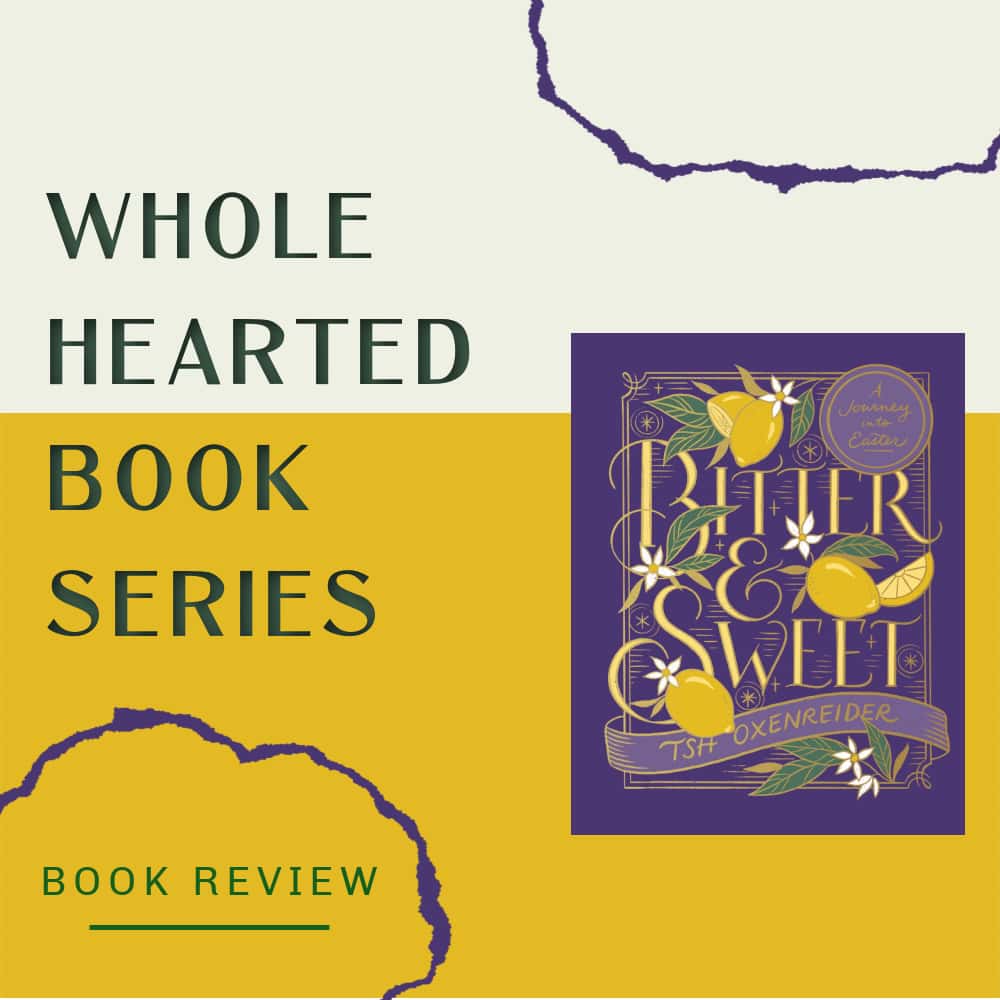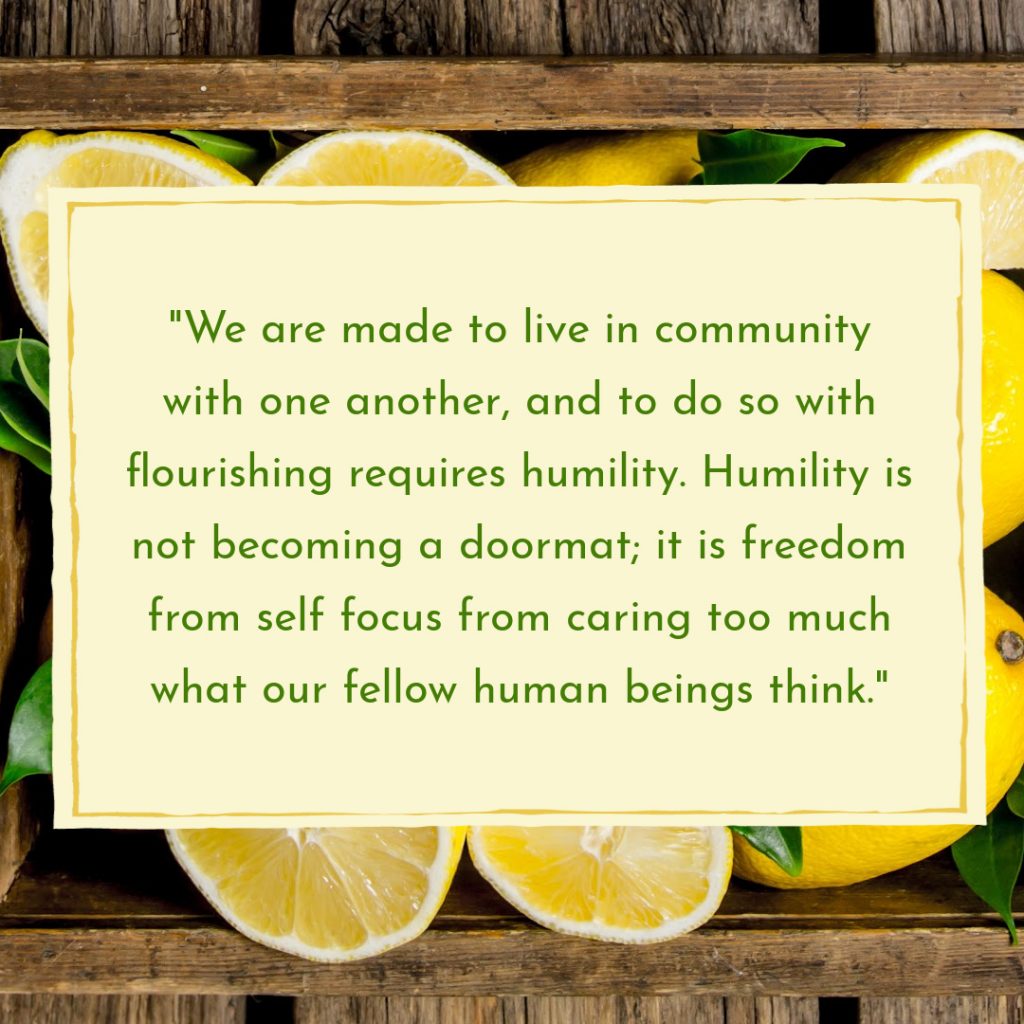Growing up in an evangelical Christian setting, I was not well versed in the rhythms of the liturgical calendar. My mom was raised Catholic and I had friends who were practicing Catholics, so concepts like fasting and Lent and Holy Week were familiar, but certainly not part of our own faith tradition.
In recent years I, like many of my fellow Protestants, have been learning more about the practices and seasons of the Catholic church. While I still identify as an Evangelical Protestant, I have found myself embracing some of the concepts, rituals, and rhythms of our Catholic brothers and sisters, and have been blessed as God has met me within these different approaches to communion with Him.

Lent, in particular, is a season I have been interested in learning more about. As a relative newbie to this season, I found Tsh Oxenreider’s gorgeous new Lenten devotional to be a faithful companion in these weeks leading up to Easter, and the perfect vehicle for helping me embrace wholeheartedness in the month of April. The book begins with a brief history of Lent, which in some form was part of the early Church’s worship and has been practiced in earnest since the legalization of Christianity in the early fourth century. The season begins on Ash Wednesday, the forty-sixth day before Easter. (Lent is technically just forty days, despite spanning six days more, because Sundays during Lent are seen as a reprieve from Lent’s focus on fasting).
Tsh explains that Lent is not demanded of us, but we observe Lenten practices because they are good for us: “in a world that celebrates indulging our whims whenever we want, to practice the traditions of Lent is countercultural. Welcoming the temporary suffering of Lent is swimming upstream in a culture that prefers to go with the flow. . . to go against the current is to be alive. We can choose to live the paradoxical Christian life because we’ve been given new life in Christ, which gives us the faith, hope, and strength to do so.”
After introducing readers to the Lenten trifecta of fasting, almsgiving, and prayer, Bitter and Sweet adopts a focus on the seven vices (pride, gluttony, lust, greed, envy, anger, and sloth) and seven virtues (humility, temperance, chastity, generosity, love, meekness, and diligence) as a means through which to experience the scathing bitterness of our sin and the ineffable sweetness of Christ. Throughout, we are reminded that Christ “calls us to practice these works of holiness only through his grace, not through our own human merits. If we use these virtues as bellwethers of our soul’s status with God, we’ll connect our own piety with our worth or value.”

A majority of the book takes a day-by-day approach through Lent. Each day includes a brief yet insightful devotion, accompanied by a Scripture reading, a question to contemplate, a prayer, and a suggested worship song (compiled in this playlist).
It’s hard to put into words how deeply I loved this devotional. The lovely format made it a joy to read each morning, and I adore Tsh’s writing style that is artful but not overly flowery, conveying truths that are convicting though not harsh. Each reading prompted me to see Jesus in a new light or reflect on my own behavior in ways I had never considered. I was unsure how I would feel about the emphasis on vices, but this was eye-opening: Tsh provided definitions for some sinful behaviors that I have unknowingly engaged in and that I can now see have been stumbling blocks in my spiritual walk. But I was not left to wallow in my new awareness; instead I was given guidance in newer, Christ-honoring practices to adopt, and invitations to pursue virtue through Jesus’ inexhaustible grace.

This book was a mirror for my sin in several areas, the most revelatory being pride which is defined here as “an excessive desire for our own excellence for reasons outside of our divinely appointed excellence.” While it was painful to see how and where I have been prideful, I found freedom in the reminder that I don’t exist for my own glory, but for God’s, and that I can turn my focus toward glorifying Christ (who is worthy) rather than myself (who never will be).
The readings on greed also hit close to home. I had not considered myself especially greedy, but the book highlighted my tendencies towards excess and pointed to areas where I have valued things above Christ. I am seeing how my possessions (and perceived need for even more possessions) are indicative of a failure to trust God’s provision and how these things can render me deaf to opportunities to hear from God. This perspective enhanced my understanding of fasting during Lent—something I did not do this year but might in the future.

Lent is nearly over, and I am sad that my journey through Bitter and Sweet is coming to an end. I will likely pick up this devotional again next spring, and HIGHLY recommend it for Lenten veterans and newbies alike.
My Book Rating: 5 Stars.